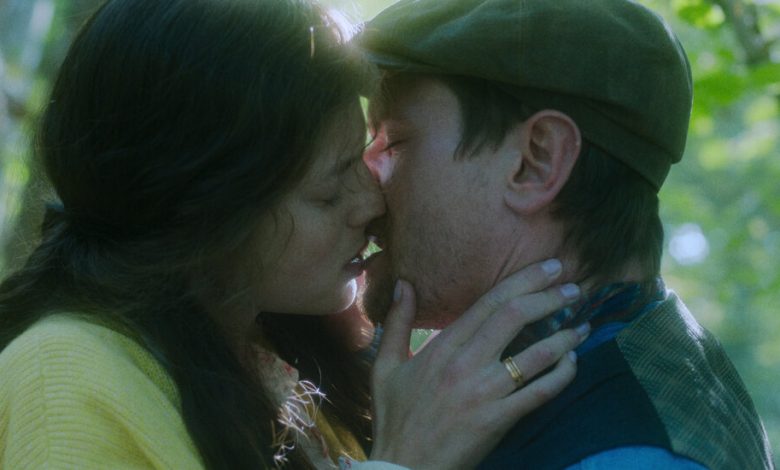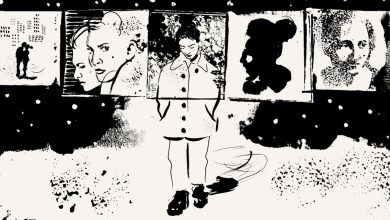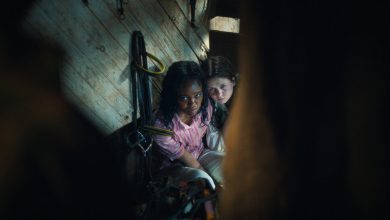‘Lady Chatterley’s Lover’ Review: When Connie Met Ollie

Now that banning books is coming back into fashion, it might be a good time to revisit “Lady Chatterley’s Lover,” one of the most notoriously suppressed novels of the 20th century. D.H. Lawrence’s book, finished a few years before his death in 1930, was legally published in Britain uncensored only in 1960. According to a famous verse by Philip Larkin, “sexual intercourse began” sometime between that date and the release of “the Beatles’ first LP.”
Be that as it may, there is quite a lot of sexual intercourse in the novel’s pages, presented with a descriptive candor and psychological insight that shocked the censors and excited generations of readers. Film adaptations followed the loosening of restrictions around onscreen sex, and have included a soft-core 1981 Eurotrash classic starring Sylvia Kristel, a 1993 BBC mini-series and Pascal Ferran’s lyrical 2007 French-language art film. Now we can add Laure de Clermont-Tonnerre’s Netflix version, at once steamy and decorous, which splits the difference between forbidden pleasure and English-class homework.
Emma Corrin, recently Princess Diana in Season 4 of “The Crown” (speaking of Netflix), again plays an independent-minded young woman trapped in a cold aristocratic marriage. It doesn’t start out that way. Clifford Chatterley (a finely tuned Matthew Duckett) strikes his new bride, Constance Reid, as a kind and progressive fellow. He’s also a baronet, master of an estate near a coal-mining village in the Midlands. On their wedding day, Connie tells her sister, Hilda (Faye Marsay), that Clifford makes her feel safe.
He’s also a soldier in uniform, on leave from the front. When he returns from World War I, paralyzed from the waist down, he and Connie move to Wragby, the family seat, and try to adjust to unanticipated hardships. Clifford writes a novel — Connie types the manuscript — and then turns his attention to managing the land and modernizing the mines. His wife, the daughter of an itinerant artist and accustomed to a life of culture and sociability, languishes in the countryside and buckles under the burden of caring for Clifford. Until, that is, she meets Oliver Mellors (Jack O’Connell), Wragby’s newly hired gamekeeper, who has returned from the war to raise pheasants and read James Joyce.
The affair that ignites between Oliver and Connie transgresses boundaries of class and norms of propriety, the first more strikingly than the second. Connie’s adultery was Clifford’s idea at first, though the studly gamekeeper was hardly the partner he envisioned. Eager for an heir to carry on the Chatterley name, Clifford proposed a discreet tryst with no strings or complications, and with a man of suitable station. The idea shocks Connie, and while it’s not really the catalyst for what happens with Oliver, it does create a vague sense of permission, a breath of oxygen that helps a spark of attraction burst into flame.
To Lawrence, lust was powerful — even overpowering — but never simple, a force that could override reason and social convention that was nonetheless packed with meaning and constructive possibility. Clermont-Tonnerre, working from David Magee’s script, shows a lot of sex — and Corrin and O’Connell generate an intensity beyond the sighing and squirming that passes for hot stuff in most mainstream movies — but the sensuality remains stubbornly skin deep.
That may be inevitable. The ubiquity of naked bodies onscreen has drained away the power of such images to shock, and also to mean anything. The real drama of “Lady Chatterley’s Lover” now lies elsewhere, in the systems of power that trap Oliver and Constance and in the lovers’ rebellion against them. Oliver, in spite of his military record (he left the army as a full lieutenant) and his intelligence, is stuck in the deferential, dependent role of Clifford’s servant. Connie, for all her talent and ingenuity, has no social identity beyond her ladyship. But both she and Oliver understand themselves to be free people.
Sex is an assertion of that freedom, but the key that unlocks their cages isn’t so much sex as the refusal of shame. Even in the forests and meadows around Wragby, their carrying on can’t escape detection forever. Clifford’s caretaker, Mrs. Bolton (Joely Richardson, who played Lady Chatterley in the BBC mini-series), is one of those people on whom nothing is lost. Before long, gossip and scandal threaten the erotic idyll.
“It’s a love story,” Mrs. Bolton ultimately decides, and Magee and Clermont-Tonnerre’s adaptation emphasizes the romance of Lawrence’s book over the radicalism of his vision. This “Lady Chatterley’s Lover” is faithful to the novel, while also revealing how safe, how domesticated, it has become.
Lady Chatterley’s Lover
Rated R. Sexual intercourse. Running time: 2 hours 6 minutes. Watch on Netflix.




